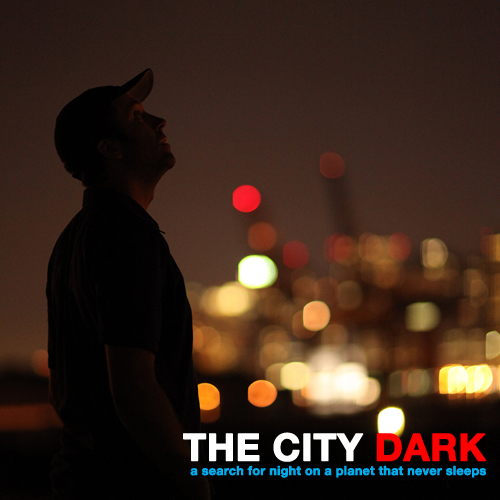What: A gathering at The Field Museum for Chicago’s civic leaders and community members to discuss ways to take action against climate change despite U.S. plans to withdraw from the Paris Climate Change Agreement. The Forum will mark the launch of a Chicago Agreement on Climate and Community, a commitment by the city’s neighborhoods, institutions, and organizations to curb climate change. The event will feature speakers and musical performances.
One Earth Film Fest toasts supporters with launch party at Tesla Chicago
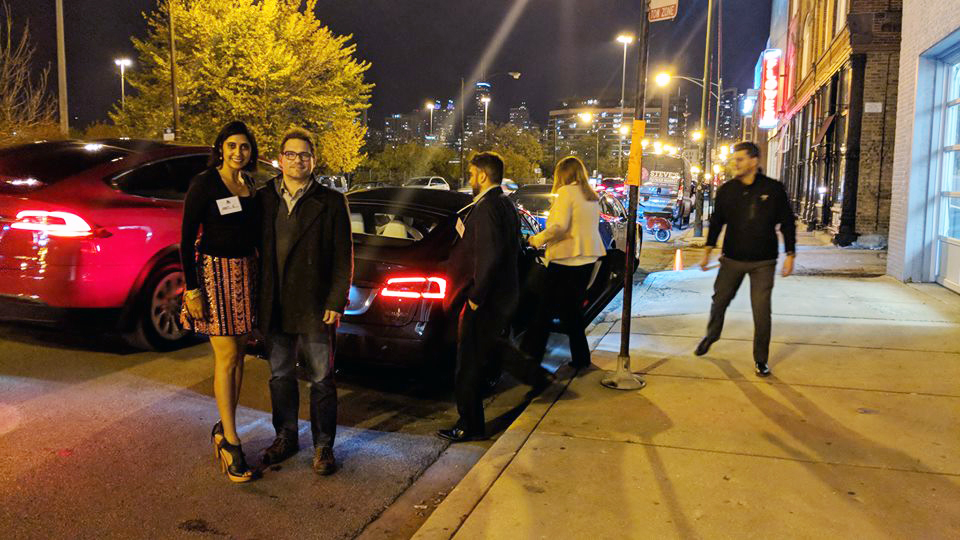
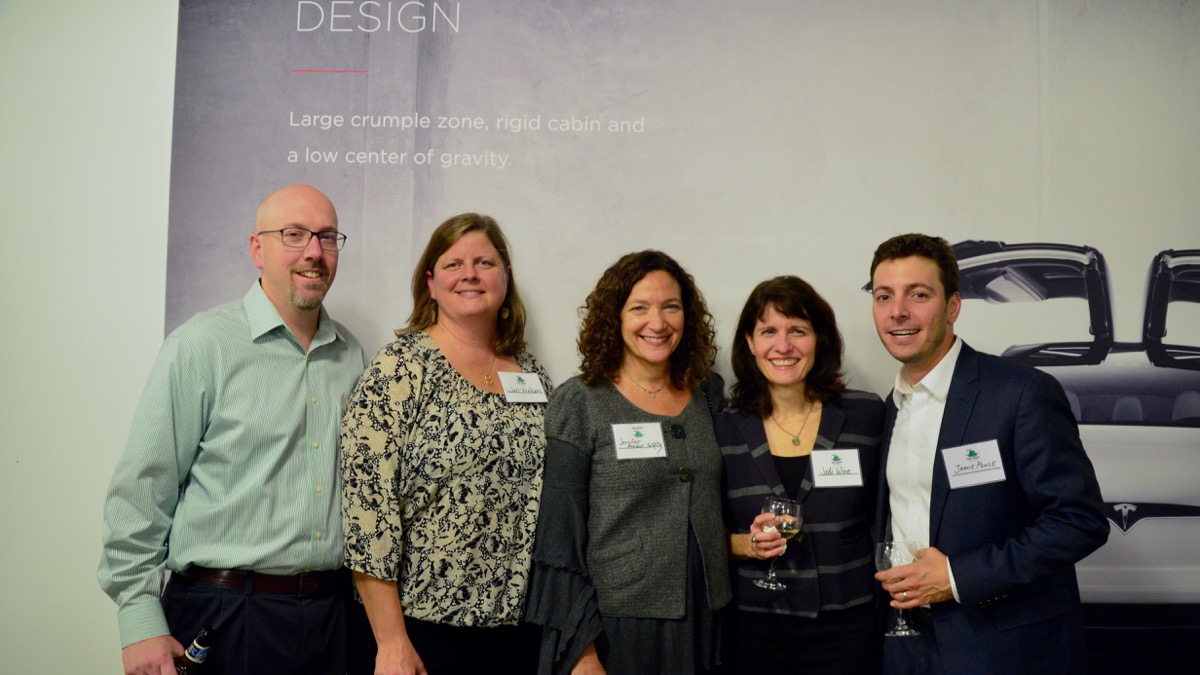
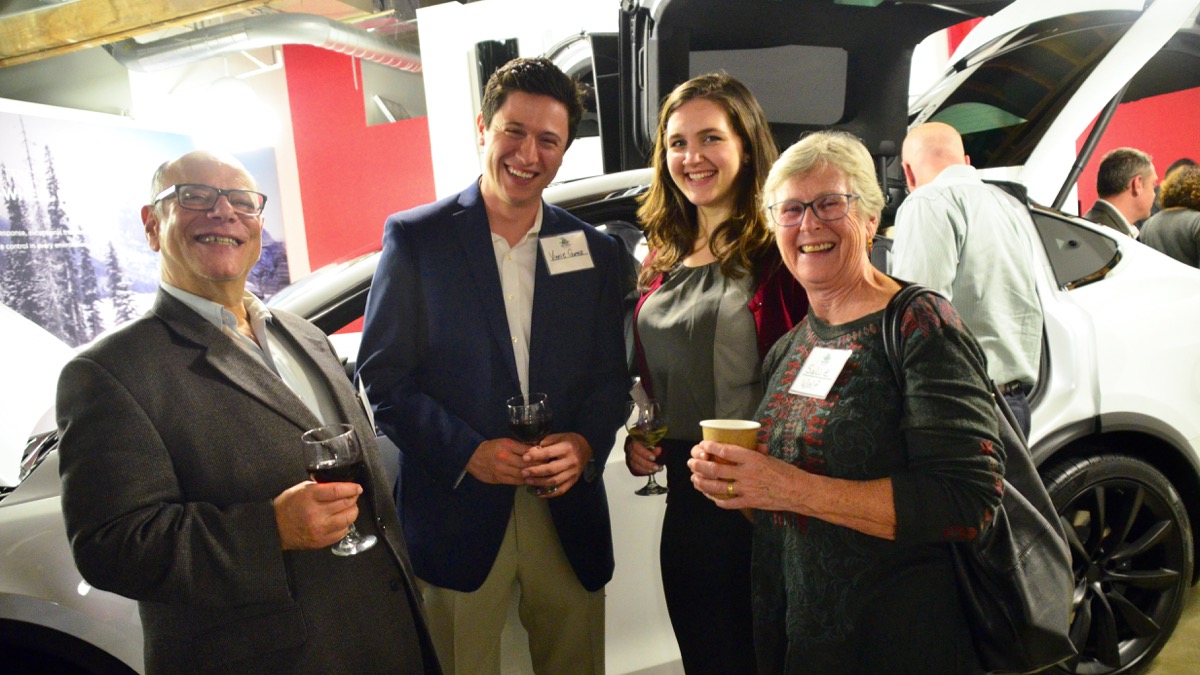
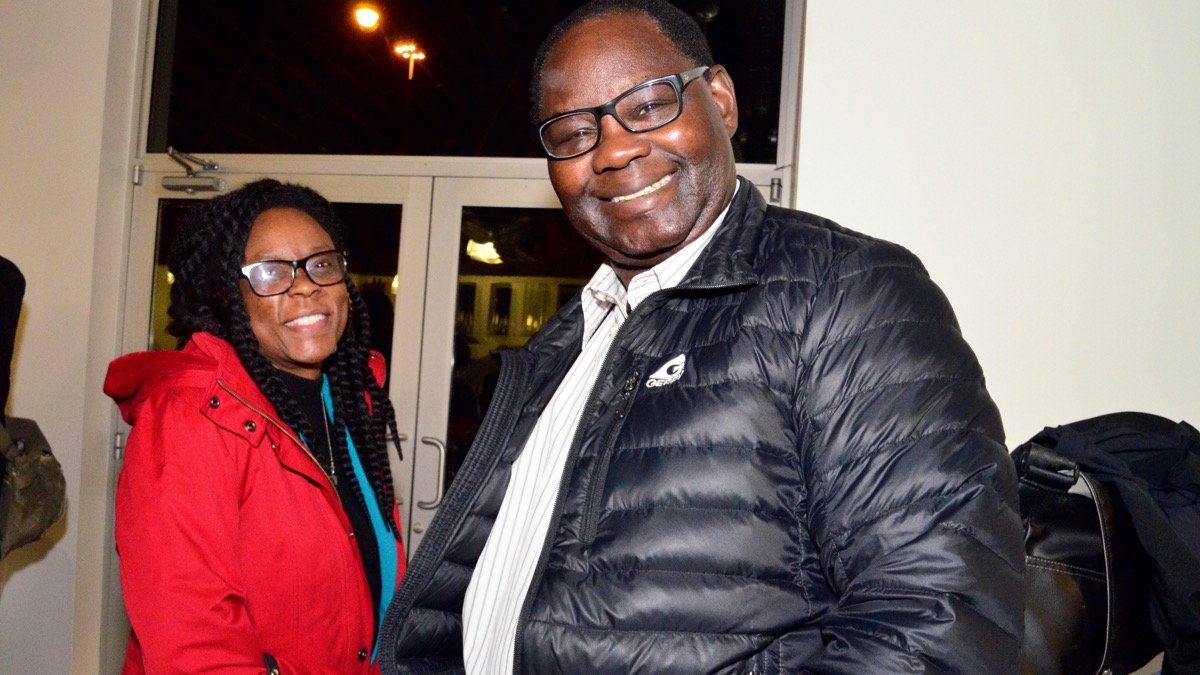
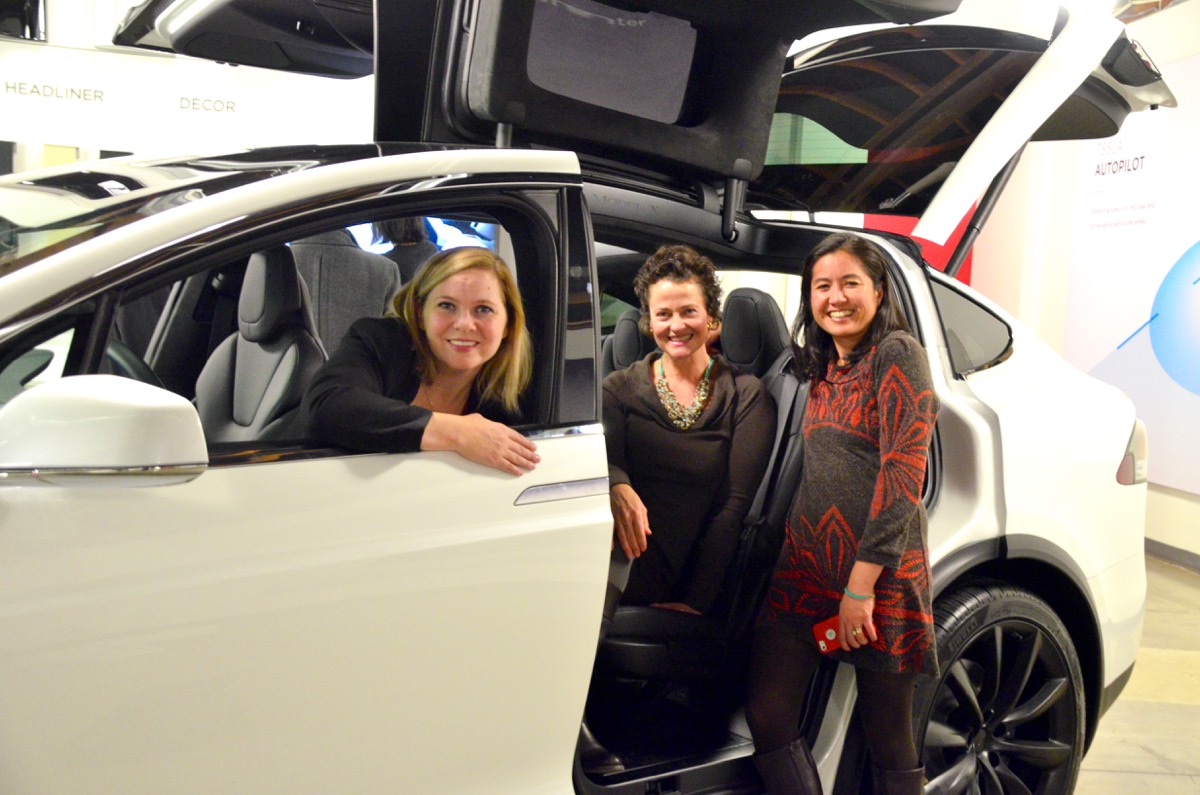
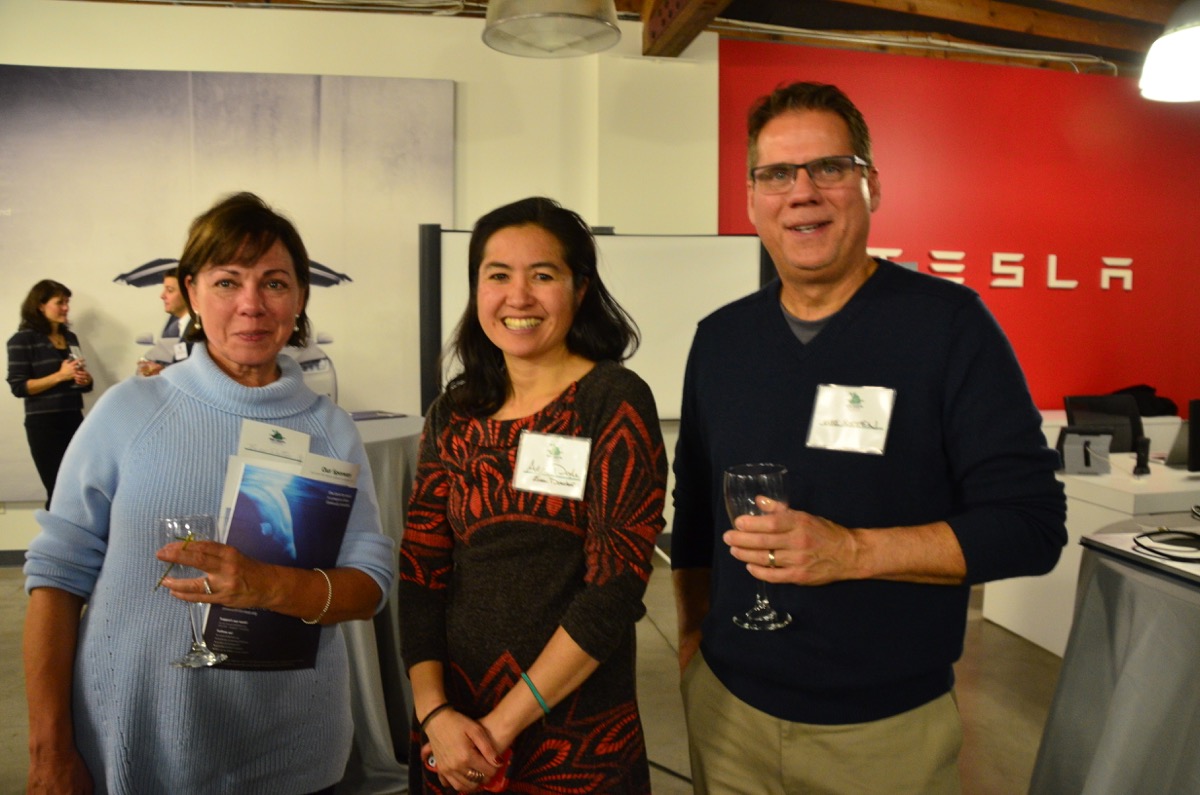
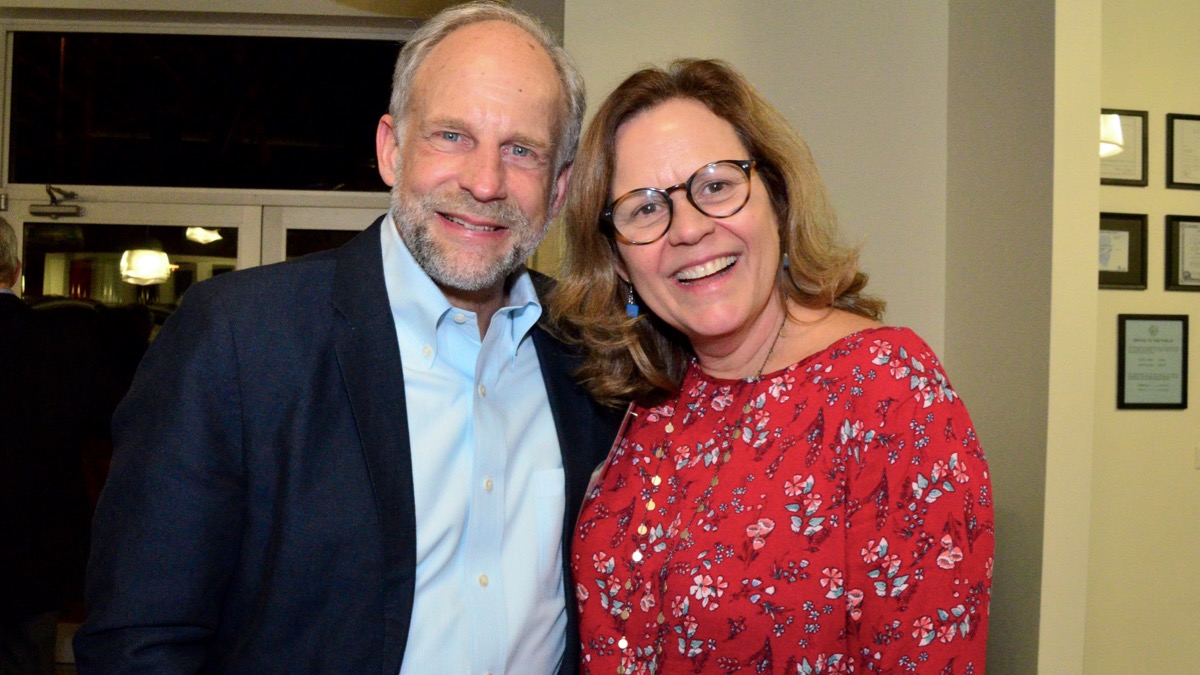
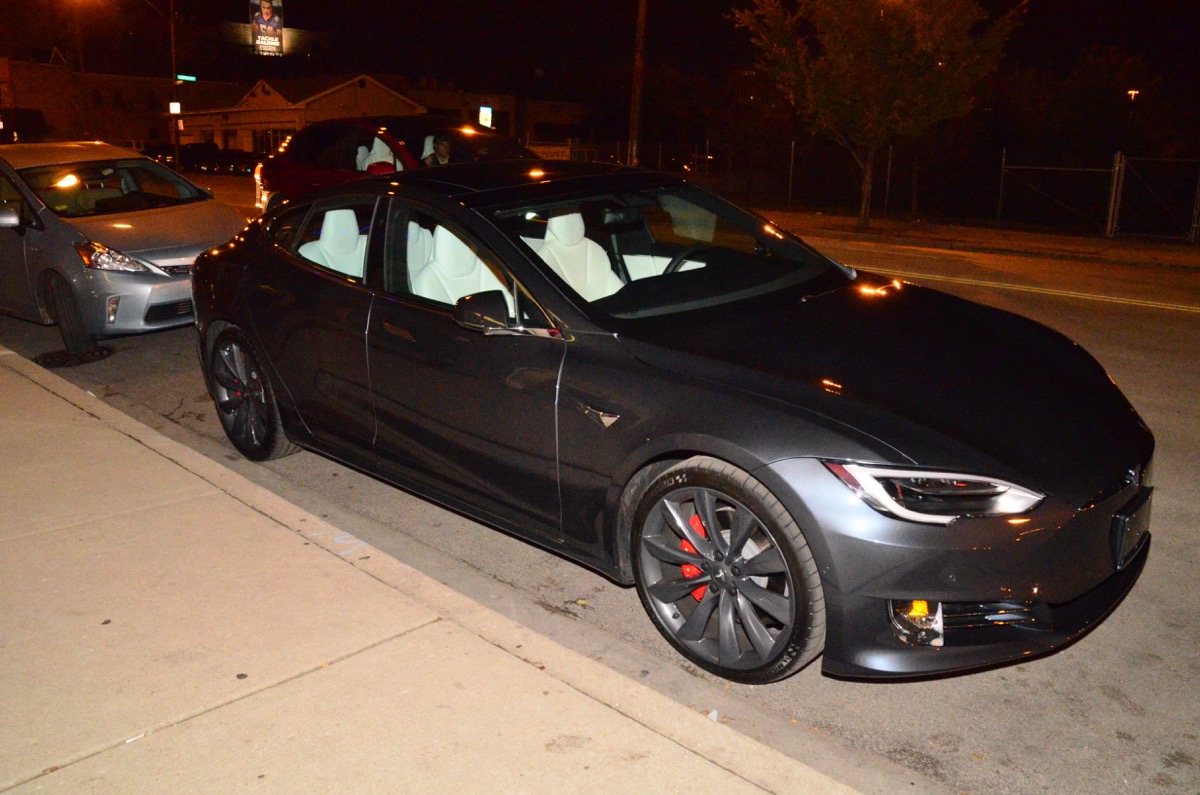
To kickoff it seventh year, One Earth Film Festival held a special evening event, hosted by Tesla Chicago, in honor of its most generous donors, partners and special friends. More than 60 guests turned out to help the Festival celebrate its success in 2017 and launch its 2018 Season.
The evening featured cocktails and hors d'oeuvres, conversation and a sneak-peek at the 2018 Fest.
Here's what Swati Saxena, a Festival sponsor, had to say about the event:
"Dennis and I loved the exclusive, unique experience of the Festival launch at the Tesla showroom. It gave us an opportunity to chat with other passionate individuals — from filmmakers, grant writers to sponsors. It showed how it truly takes us all working together to do the right thing for the environment.
"I learned a lot of the behind-the-scenes that goes on to make the One Earth Film Festival a huge success, and the explosive growth it has had and the varied audience that the organizers aim to reach. The preview of the "Chasing Coral" movie and the heart-pounding test rides in the Teslas were the icing on the cake. Proud to support the valuable work and exposure that you provide."
Ana Garcia Doyle at TEDx: Ecology and Equity: What’s Possible?
Ana Garcia Doyle presents her TEDx Oak Park Women talk, “Ecology and Equity: What’s Possible?” Thurs., Nov. 2, 2017 at the 19th Century Club in Oak Park, Ill.
By Ana Garcia Doyle, Founding Member & Executive Director, One Earth Film Festival
The following is a transcript of Ana’s TEDx talk, “Ecology and Equity: What’s Possible?” given at TEDx Oak Park Women on Thurs., Nov. 2, 2017 at the 19th Century Club in Oak Park, IL. The event was part of a coordinated TEDx Women event across the United States, focusing on the topic of “Bridges.”
I’ve been doing environmental work in some form or other for the past 13 years. I didn’t major in environmental science and “sustainability” wasn’t a widely used term or a common program of study all those years ago.
But something happened in the year 2000, when my husband Jim and I were temporarily living, working and starting our family abroad in Zurich, Switzerland, a place where our hearty, ruddy-cheeked friends delighted in Alpen hikes and lived lighter on the planet than we ever had in our home country.
I had a series of moments that would later spark my passion for environmental work. One came while holding our firstborn daughter, only a few weeks old. I was crushed and activated at the same time by the responsibility of what to feed this little being (something organic, of course!); how to ensure no icky toxins touched her baby blanket, her hair, or her delicate skin; whether the health of our world would be preserved long enough for her to wade in creeks catching salamanders in old milk jugs, like I did as a kid — or fall in love with the smell of grass, as her father had.
I am a digital marketer by trade, but starting in 2004, I began working on green teams and leading green school initiatives. My husband and I underwent the sustainable renovation of our 100-year-old home. I joined other green-minded neighbors to start One Earth Film Festival and develop sustainable communities initiatives. Like all good environmentalists, I enjoyed making homemade bread and yogurt and kombucha.
I was humming along in my environmental sphere, when I was struck last year – momentarily confused, even – while listening to an interview of civil rights lawyer, activist, and “The New Jim Crow” author Michelle Alexander. She repeatedly used the word “disposable.”
Ana Garcia Doyle, One Earth Film Festival director
She spoke of the Black Lives Matter Movement, and about our “disposable” treatment of one another.
Disposable? That was our word! Our environmental word. A word we used in building zero waste programs at schools.
Disposable? A word that arose naturally in producing our non-profit’s environmental film festival.
Disposable. A sadly, horrifyingly fitting word to describe how little value one human might place on another; to deem someone as having no use -- as expendable, perhaps replaceable. Like a single-use plastic bottle or a cheap pair of Walmart flip flops.
Think about disposability in the context of plastic water bottles and plastic bags and cheap clothing, and what that’s doing to our planet. Now think about disposability in the context of lives and people and what seeing one another as “disposable” – as having no value, no purpose – is doing to our humanity.
I began to see these types of degradation as parallel.
Consider this.:
Every year, 2.4 million tons of plastic is discarded in the U.S. 26 percent to 41 percent is single-use plastic water bottles.
Over 2.3 million people are currently dispossessed in the American criminal justice system - more people, per capita, than in any other nation.
102.1 billion plastic bags are used by Americans each year.
21 million people are abused — trafficked in sex and labor around the world — in exchange for $32 billion in profits from the widespread crime of global human trafficking.
Almost 8 million metric tons of plastic ends up in the world's oceans annually. There will be more plastic in the ocean than fish by 2050.
About 90,000 people are affected by this year’s travel ban. There will be more innocent people affected than there are terrorists or criminals detained.
Some time after Michelle Alexander bridged these for me (ecology to equity), I took the same bridge, but in reverse, from the side of civil rights back to the side of environment. And the journey shook me in much the same way.
In his award-winning book, “Between the World and Me,” author and journalist Ta-Nehisi Coates speaks repeatedly of “the body,” “his body,” “plundering the body of another.” It was hard to grasp at first.
But then, Coates likens our blatant disregard for “the body” of another . . . to our – the human race’s -- blatant disregard for our collective body, which is, in fact, the Earth itself.
I saw in these two instances something that now keeps showing up, wherever I look: that those of us working on a more balanced ecology and those of us working on equity (human rights) – on any front — we are doing the same work.
We ARE one body — working against the degradation of our Earth, and against deeply rooted injustices toward its people. We are working against disposability and toward resiliency.
These linkages are now clear as day to me. Some of us are reaching out to care for our planet. Some of us are reaching out to care for others. All of us are interconnected, interdependent, in our work to restore.
And knowing that we are linked makes us stronger – not part of separate movements, but part of a connected macro-movement. Even thinking about the language, the vocabulary, the ideas and best practices on the side of ecology and then on the side of equity can help build bonds for a macro-movement.
Let’s look at it from both sides.
Upcycling is an environmental term for reusing or repurposing something that may have been discarded — in order to create something useful, and in some cases with a higher value than the original.
This environmental framework has implications for juvenile justice: how do we upcycle our young people — even those who’ve “offended” — treating them in a way that helps them believe they are better; know they are capable of a higher standard; trust that we’re here to support them in getting there?
The idea of zero waste comes from nature, where there is no waste. In nature, all waste is food for something else. Dead leaves, for example, fall to the ground and compost, nurturing the tree in fall and winter to help it emerge revitalized in Spring.
What if we tried viewing each other with a kinder, more fair lens? A “zero waste” lens? Believing that no matter how disjointed or broken – or simply different – someone is, all our lives have value, and are worthy of being recycled (made new) or upcycled (made better).
Let’s look now at a social justice term. Restorative Justice. Seems like a pretty complex term. What does it mean? Restorative Justice is “a system of criminal justice that focuses on the rehabilitation of offenders through reconciliation with victims and the community at large.”
What lessons does restorative justice teach us about the work of healing our planet?
Restorative Justice could look like working with polluting industries to help them take responsibility for their actions, make reparations, and work toward generative practices such as the clean-up of a natural area, or sponsorship of large scale urban gardening or land restoration programs. The ecologists in us often view industry, with its large appetite for natural resources, as “offenders.” But can we reconcile, teach, guide, and forge partnerships fixed on rehabilitating our Earth?
Doing so could make a difference on a broad scale. Imagine the impact of even a small shift from a multinational company whose products and services touch the lives of many millions of people the world over. It could have major beneficial impacts across human and non-human ecosystems.
Ecology and equity can both teach us things about the interconnected web of work of that is restoring planet, and restoring people. What else do these intertwined movements have in common that can help us combine them for greater effect, for more strength in facing the challenges of both, head-on?
Relationship is critical to solving issues of ecology and equity.
Let’s look at the environmental side. Youth, for example, who do not have any exposure, who have no relationship, to the outdoors or nature will never feel connected to it, will never want to preserve it.
During One Earth Film Fest a few years back, we showed a film called “Project Wild Thing,” where children were shown enlarged images of objects in everyday nature – a dandelion, or a robin.
The children were stumped. None could name what they were seeing, though a few acknowledged having noticed these objects in the world around them at some point or other.
The images were then replaced by common logos: McDonald’s, Nike, Target– each identified swiftly and in turn by each child. My head fell to my hands. Are we forgetting to teach our children about the world that sustains them? My attention turned to myself: how developed was my own relationship with nature?
On the equity side. It’s probably pretty clear to most of us that NOT being in relationships with those who are different from us -- can block our understanding of and empathy for one another. Not mixing, not co-mingling is standing in the way of our ability to experience, create and expect equity from our world, our systems, our neighbors, ourselves.
I look at my own life, with all that my eyes are just opening to, and see that it’s hard work — and that it really is true: we have to be intentional – and even step into a zone that may at first feel uncomfortable, or “fake” – perhaps because it’s unfamiliar.
What would it be like if we stopped choosing to live next door to those who look like us, or if we stopped hiring or choosing to spend time only with those who think like us?
Intentionally living a life of more diverse relationships is connected — can ladder up — to bringing more people the same opportunities for a safe, purposeful life.
There are everyday opportunities to start building strength – to start flexing our muscles, so we get stronger at these things. And they become easier, more automatic.
Building a healthier planet. We can start small. Stop buying single-use plastic bottles at home, at work, for social functions; eventually, it won’t be so difficult to replace a disposable system with one that’s reusable.
Building a more equitable social system. Can we reach out to someone who isn’t like us when hiring a new team member at work, or recruiting a co-lead on a PTO committee? Can we give our kid some tips for befriending the new Chinese transfer student in class, and then seek out that student’s parents at the next school function?
We can practice and build strength by mixing the two.
If we’re going to do environmentalism, can we do it with an equity approach? Can we help seek out minority-owned businesses to bid on a solar project coming to our community? Can we hire underserved youth or a disabled person to help with our lawn care?
If we’re going to learn more about our part in equity, like I did by taking a workshop with the Institute for Nonviolence in Chicago’s Austin community – can we gently bring in our “green” suggestions about the dinner portion of the evening? Maybe we can volunteer to help make the dinner “zero waste” by bringing reusable cups and plates, and carting those – plus compost – home at the end of the event?
I am changed from seeing that the work of ecology and the work of equity are not only linked, but that those of us working on each of these issues – and maybe soon both of these issues – are stronger together.
Here are some words that encourage me when the news headlines don’t – and the work of these movements, this macro-movement, seems overwhelming:
"When I dare to be powerful
to use my strength in the service of my vision
then it becomes less and less important whether I am afraid." – Audre Lorde
I hang onto this – because in it, I see a formula. I see strength + vision = power. I see that fear is a factor, but that it can become smaller and more bearable if I keep my eye on the prize, and use what I’m good at to guide me.
I have chosen to use my strengths in the service of a vision for a more resilient future -- of planet and people. That is my power.
What is yours?
I invite you to live this formula. I invite you to seek out your strengths, to serve your vision, to tame your fear, and to find your power.
And if you dare, I ask you to use your power to join me -- in making real the vision for a non-disposable, not discarded, just, upcycled, equitable world that is not only resilient in the wake of all that may be sick and broken– but that also lives in the beautiful question of what’s possible.
Is it possible? I think it is.
Ana Garcia Doyle likes to be future-facing. She believes there is no time like the present to focus on the future of our planet and of generations to come. As a founding member and Executive Director of Chicagoland’s One Earth Film Festival (“Moving Planet, Moving People”), she is thrilled to be working with an amazing team as it enters its 7th year. Over the past year and a half, and in light of longtime world events, she is captured by the critical work and promise that sits at the nexus of ecology and equity. Ana has spent more than 20 years in digital publishing, marketing, and strategy. She is an active leader in the zero waste schools initiative in Oak Park’s District 97, speaks professionally on topics of sustainability, is a green homeowner together with her husband Jim -- and is proud mama to three sharp, sweet young greenies.





